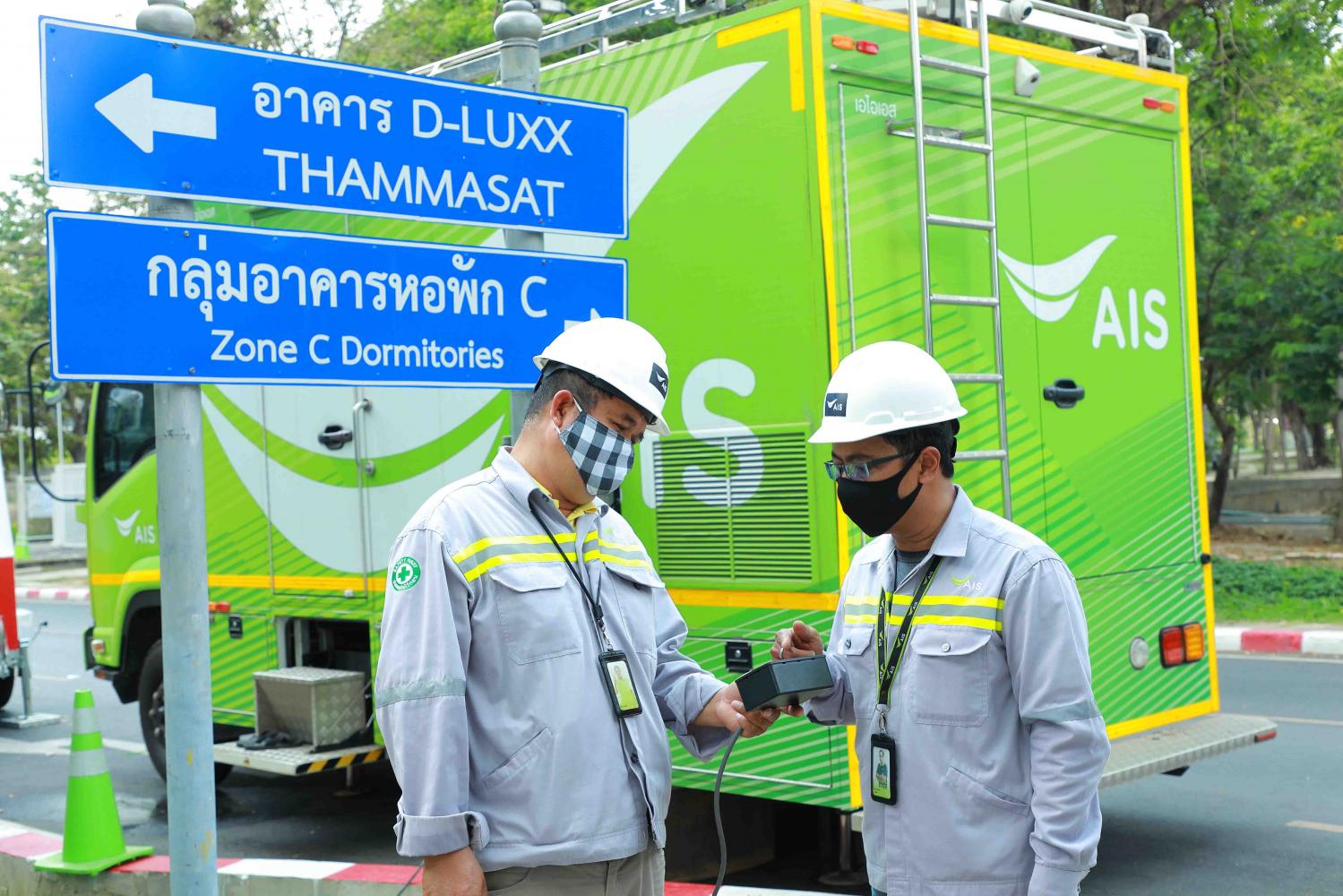
Advanced Info Service (AIS), the country's largest mobile operator, is gearing up for an initial outlay of 100 million baht for efforts to combat the coronavirus outbreak locally, ranging from 5G network installation at hospitals treating infected patients to robot deployment for telemedicine.
The scheme is called "AIS 5G Battling Covid-19 for Thais".
AIS chief executive Somchai Lertsutiwong said 5G is a perfect digital infrastructure to support medical and public health services driven by high-speed internet, quick response, low latency and a variety of Internet of Things connectivity.
He said the 5G network has been expanded to cover significant Bangkok districts and five major cities in provinces. The network expansion continues despite the coronavirus outbreak, Mr Somchai said.
"Telecom traffic is a critical infrastructure, especially during the crisis," he said. "The company recently boosted its network capacity by three times to cope with the data traffic demand driven by work from home measures promoted by the government and corporations."
AIS has installed 5G network equipment at 20 hospitals that are treating coronavirus patients.
The 5G network is projected to expand to 130 hospitals in Bangkok and eight more in major provinces later this month, Mr Somchai said.
An AIS robotic lab is scheduled to be set up to cater to researchers and innovators tasked with developing robots for 5G telemedicine. They will work with medical personnel to build robots that serve hospital needs, he said.
The lab is expected to produce 21 robots that will be distributed to 20 hospitals that provide physical exams and treatment for Covid-19 patients.
Rajavithi, Siriraj, and Chulalongkorn hospitals will receive the first batch of robots.
These robots are programmed to perform thermal scans and serve as a communication tool between doctors and patients via a video call, reducing the risk of contraction and lowering human traffic inside hospitals.
Mr Somchai said 80% of the company's 12,000 staff are working from home and the move is not hindering service or operation efficiency.
The company suspended plans to open more service shops in the wake of the outbreak, he said.
The outbreak has changed customer behaviour, with more reliance on online channels and mobile apps for work and daily life.
"We may have to wait and see the trends and results after the outbreak subsides before we reconsider shop expansion," said Mr Somchai.
He said the company started operating under a business continuity plan in early February to deal with the crisis.
The firm has enacted strict measures to ensure the safety of all employees, said Mr Somchai.
